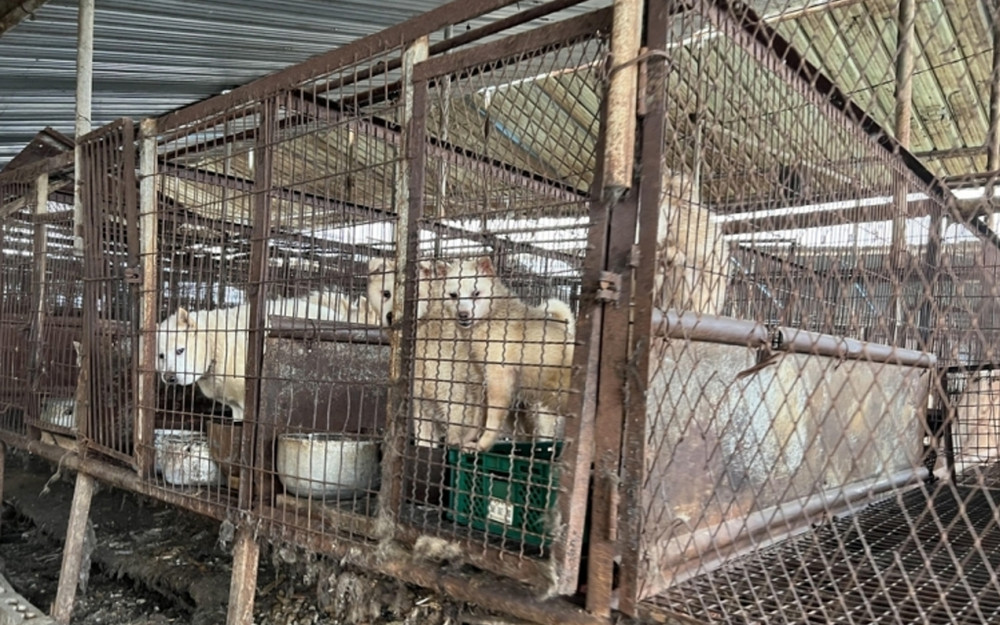
Legislative efforts to end the consumption of dog meat in South Korea are gaining momentum, driven by an unusual display of political unity following the vocal support from the presidential office.
While calls to abolish this centuries-old practice are not new in South Korea, where neither explicit prohibition nor legalization exists for butchering or consuming dog meat, the anti-dog meat movement gained renewed attention in late August. This surge in attention was sparked by the surprise visit of First Lady Kim Keon Hee to a civic group's press conference advocating for the termination of the practice.
In an unprecedented display of bipartisan cooperation, the ruling People Power Party has pledged to champion an anti-dog meat bill named after the First Lady, and the main opposition Democratic Party (DP) has also committed to resolving the issue by the end of 2024.

Currently, four bills calling for a ban on dog meat consumption are pending, with numerous lawmakers from both major rival parties endorsing two resolutions dedicated to eliminating the practice.
These proposed bills seek to establish the legal foundation for prohibiting activities related to breeding, slaughtering, or distributing dog meat and dog-based food products while simultaneously mandating the Ministry of Agriculture's assistance in transitioning those working in the industry to new employment opportunities.
However, the likelihood of these bills passing still remains uncertain due to fierce opposition from dog meat farmers, restaurant owners, and others who rely on the industry for their livelihoods.
Animal rights advocates decry the cruelty of consuming dogs, while some argue that the tradition is no different from consuming beef or pork.

Supporters of dog meat consumption contend that legal bans infringe upon what they perceive as "people's sovereignty over food" and endanger the livelihoods of dog farmers.
According to Ju Yeong Dong, the former secretary general of one of the largest associations in the dog meat industry, "It is an atrocious act to deprive people of the right to eat. Dog meat is the fifth most consumed meat in South Korea. They have no right to interfere with people's livelihoods or the fundamental right to determine their food choices."
As of last year, approximately 3,500 farms in South Korea were breeding dogs for food purposes, supplying dog meat to around 3,000 restaurants nationwide.
In recent decades, South Korea has faced criticism from foreign critics for its dog consumption practices. A notable incident occurred when former South Korean President Roh Tae Woo was met with angry protestors criticizing dog meat consumption during a visit to London just before the 1988 Seoul Olympics.
While dog meat stew, known as "boshintang" in Korean, is no longer popular among younger generations, some older South Koreans still consider it a delicacy, particularly during the summer months.
In a Gallup poll conducted last year, 64 percent of respondents aged 18 and older expressed a negative view of dog meat consumption. This marked a significant increase from 2015, when only 44 percent held such negative views.
 SHARE
SHARE


















































Please do not harm nor consume dogs ... I hope and believe the four bills will pass. Dogs are loving creatures who provide security and loyalty. Not only South Korea, but also North Korea (hopefully) can enforce dog meat ban. 🙏
4 more replies